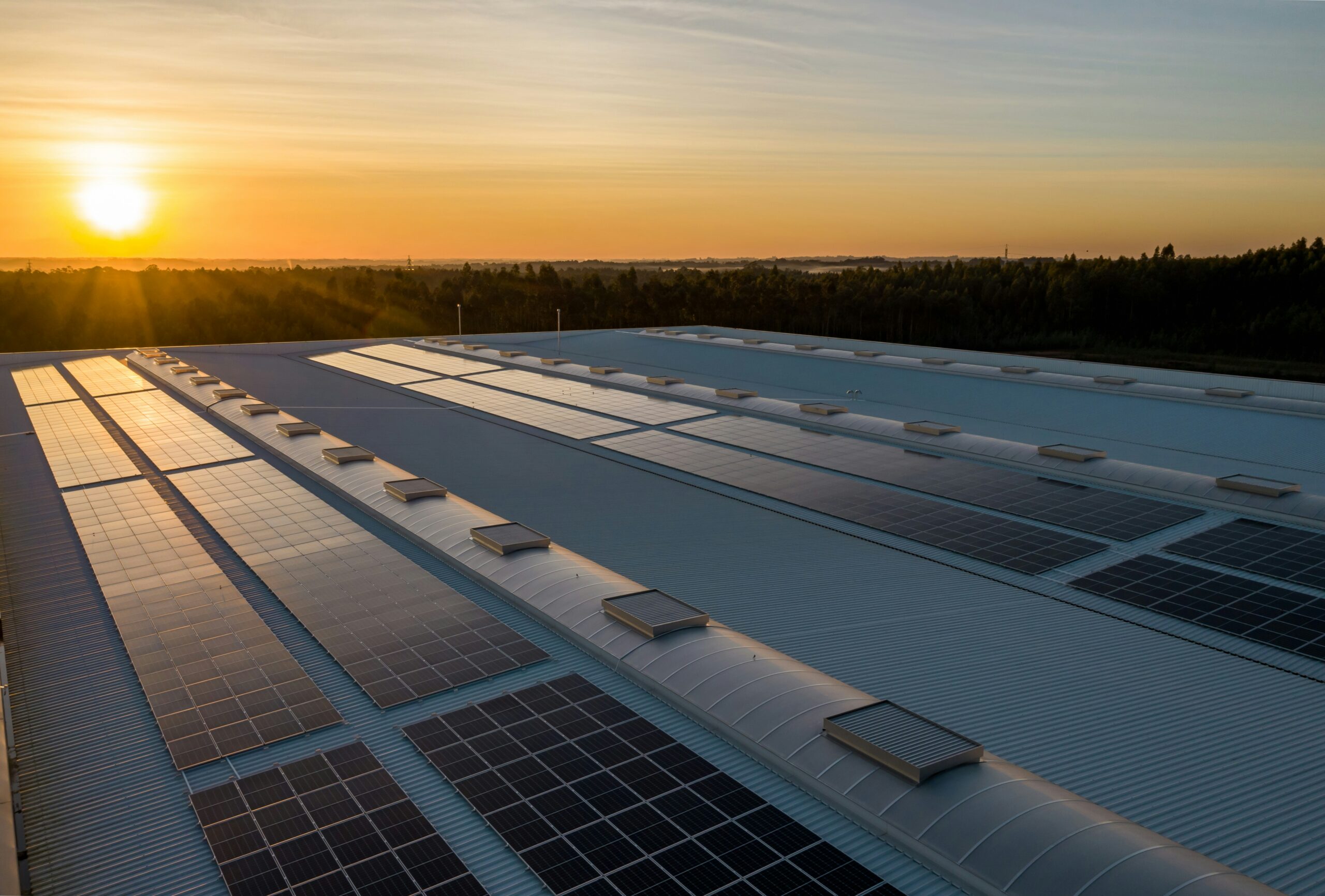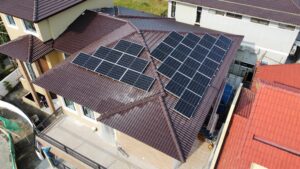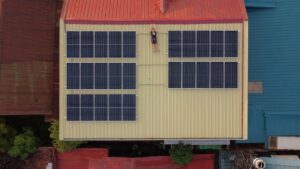The sun is a powerful source of energy, shining down on our planet every single day with more energy than we could ever need. In fact, just one hour of sunlight is enough to meet the world’s energy needs for an entire year! Yet, despite this abundance, we’ve spent centuries relying on fossil fuels and other nonrenewable resources to power our homes, businesses, and industries. But now, with the rise of solar technology, we have the ability to harness the sun’s energy and turn it into electricity through solar power.
In this blog, we’ll explore how you can turn sunshine into energy, the benefits of doing so, and why solar power is a game-changer for both our planet and our wallets.
1. What is Solar Power?
Solar power is energy that is generated by capturing sunlight and converting it into electricity. This is done using solar panels, which are made up of photovoltaic (PV) cells that absorb sunlight and convert it into usable energy.
When sunlight hits the surface of these solar cells, it excites electrons, generating a flow of electricity. This electricity is then used to power homes, businesses, and even entire cities. Solar power is renewable, clean, and sustainable, making it an ideal alternative to traditional energy sources like coal, oil, and natural gas.
2. How Do Solar Panels Work?
Solar panels work through the combination of sunlight and advanced technology. Here’s a breakdown of the process:
- Solar Cells: The heart of the solar panel, these cells are made from semiconductors (usually silicon) that absorb sunlight. When sunlight hits the cells, it creates an electrical current through the photovoltaic effect.
- Inverter: The electricity generated by the solar cells is in the form of direct current (DC), but most homes and businesses use alternating current (AC). The inverter converts the DC electricity into AC electricity, making it usable for your home or business.
- Utility Grid or Battery Storage: If your solar system produces more electricity than you need, you can either send the excess energy back to the grid (through net metering) or store it in batteries for later use.
3. Why Turn Sunshine Into Energy?
There are countless reasons why turning sunshine into energy is a smart choice. Here are just a few:
A Renewable and Abundant Resource
The sun provides more energy than we could ever use, and it’s constantly shining on us—whether we realize it or not. Unlike fossil fuels, solar power is completely renewable, meaning we can rely on it forever. As long as the sun exists, solar energy will be there to harness.
Lower Energy Bills
One of the biggest advantages of solar power is the potential to save on energy bills. By installing solar panels, you can produce your own electricity, reducing or even eliminating your reliance on the grid. Depending on the size of your solar system and your energy consumption, this could mean significant savings on your monthly utility bills.
Environmental Benefits
Solar power is clean and green. Unlike coal, oil, and gas, solar energy doesn’t release harmful pollutants or greenhouse gases into the atmosphere. By turning sunshine into energy, you’re reducing your carbon footprint and helping combat climate change. In fact, the more people switch to solar energy, the more we can reduce the world’s dependence on fossil fuels and move toward a cleaner, healthier planet.
Energy Independence
With solar panels, you’re not at the mercy of energy providers or fluctuating electricity prices. You’re in control of your energy production. For many, this sense of energy independence is incredibly empowering, as it allows you to reduce your reliance on external sources for power. If you’re in an area with frequent power outages or rising energy costs, solar power provides a more reliable, self-sufficient solution.
Financial Incentives and Tax Benefits
Many governments offer incentives to encourage the adoption of solar power, including tax credits, rebates, and subsidies. These financial benefits help reduce the initial cost of installing solar panels, making it more affordable than ever. Additionally, some countries have net metering programs, where homeowners can sell back excess solar energy to the grid, earning credits on their electricity bills.
Job Creation and Economic Growth
As the solar industry grows, so does job creation. Solar power is driving a new green economy, creating jobs in manufacturing, installation, maintenance, and more. By investing in solar energy, we’re not just benefiting the environment—we’re also stimulating local economies and providing opportunities for sustainable employment.
4. The Future of Solar Power
Solar power is no longer a niche technology—it’s becoming mainstream. The cost of solar panels has dropped significantly over the years, and technology continues to improve, making solar energy more efficient, affordable, and accessible than ever before. In fact, solar energy is expected to be one of the fastest-growing sources of energy in the coming decades.
As the world moves toward cleaner, renewable energy sources, the demand for solar power will only increase. Innovations in energy storage, like advanced batteries, are also helping make solar power more reliable, allowing us to store excess energy for use when the sun isn’t shining.
The future of solar is bright, and it’s only going to get better. As more people make the switch to solar energy, we can collectively reduce our carbon emissions and create a more sustainable world.
5. How to Get Started with Solar Power
Turning sunshine into energy is easier than you might think. Here’s how to get started with solar:
- Evaluate Your Energy Needs: Consider how much electricity you use, when you use it, and the size of the system you’ll need to meet those needs. A solar expert can help you determine the right system size.
- Choose a Reliable Solar Provider: Look for a reputable solar provider that offers high-quality products and excellent customer service. They’ll help you design, install, and maintain your solar system.
- Check for Incentives: Research available financial incentives, rebates, and tax credits in your area that can help reduce the upfront cost of your solar system.
- Install Your Solar Panels: Once you’ve selected the right system, your solar provider will handle the installation, ensuring everything is connected and working properly.
- Start Saving and Enjoying Clean Energy: After installation, you’ll be able to enjoy the benefits of solar energy, from lower electricity bills to a reduced environmental impact.
Conclusion
Turning sunshine into energy isn’t just a smart financial decision—it’s a step toward a more sustainable, eco-friendly future. With solar technology continuing to improve and the world increasingly shifting toward renewable energy, now is the perfect time to harness the power of the sun. By installing solar panels, you’re not only investing in your home or business, but also in the future of the planet.
Ready to make the switch to solar? Let’s turn sunshine into energy and create a cleaner, greener world for generations to come!





